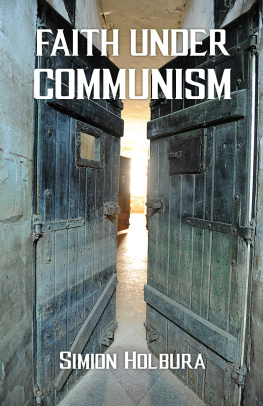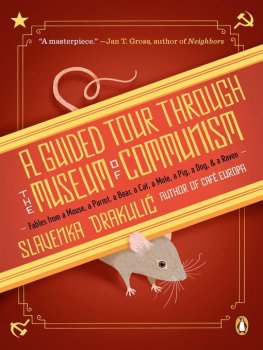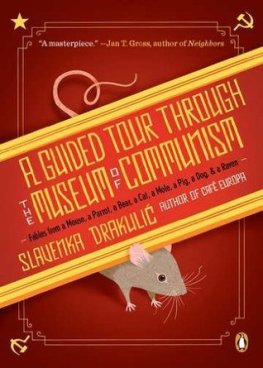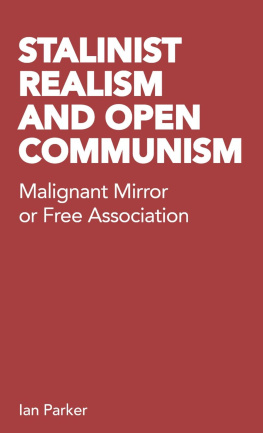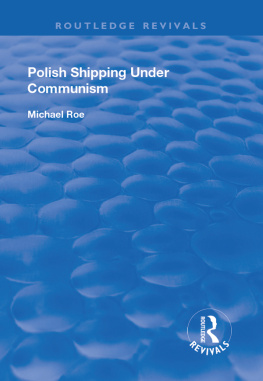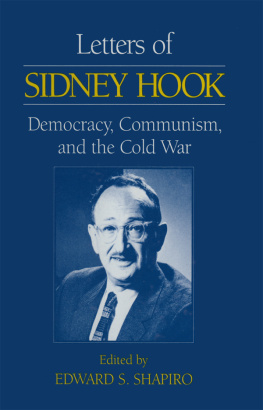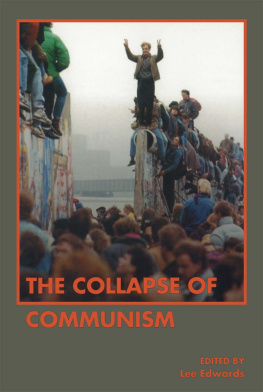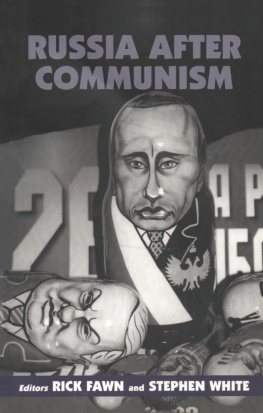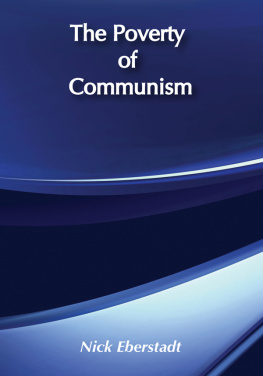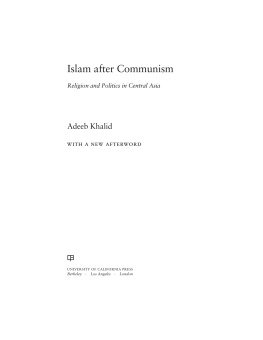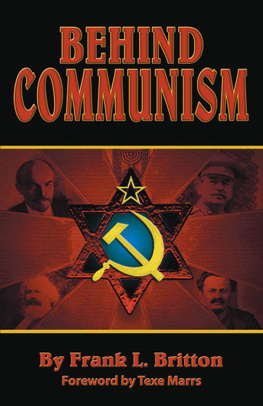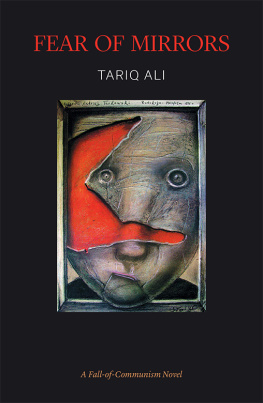F aith Under Communism
Simion Holbura
Table of Contents
Prologue
I emigrated to America from Romania in 1983 at the age of 26. Long after that, I decided to write this book and the insistence of my children. Now as adults with their own homes, families, and children, they asked me to write a book to tell my entire story as it happened when I lived in Communist Romania, and how I came to emigrate and settle down in America.
I also wrote this book believing my dear children, grandchildren, as well as other readers who want and need to know the truth about Communism and other totalitarian regimes will find it enlightening and helpful as they live their lives in this broken world.
This book is an illustrated slice of the hardest time in my life and the lives of many other Romanians who lost their lives in prisons under communism, and the families that were left behind to wonder. In it, I have exposed the cruel oppression and inhumane methods used by the communist regimes in Romania to torture Christians in order to persuade them to renounce their faith in God and become agnostics.
I pray that all who read this book keep deep in their memory the truths communism killed to conceal. It brought poverty, hunger, and pain into many Romanian homes. Some agreed with and praised the communism, calling it better than what came before and after. In lifes routine, day to day troubles, we forget the obvious fear on everyones face in days gone by.
Some may want to hide and falsify the history of that odious regime, just as others have wanted to hide and falsify the history of the Nazi regime and other tyrannies. In this present time, there are many who still suffer under the evils of communism in North Korea, Russia, and the many nations under Russian domination. Furthermore, there are those in other countries who suffer beatings, loss of jobs and homes, separation from loved ones, and loss of life for whom this book may give voice to what such treatment is like. In every place where such tyranny and repression hold sway, those who honor God, and who profess Jesus as their Lord are invariable targeted for persecution and murder.
Know and remember the truths written on these pages. Let us not allow the mistakes of the past to be repeated because we choose to forget.
Simion Holbur
Chapter 1
The Beginning
I was born on November 9, 1956, in a Romanian Pentecostal Christian family that taught me to live a pure life of constant awareness of and repentance for sins. Obeying and pleasing God was to be our first priorities. We were known by others to have strict standards for our speech, conduct, and dress. Our women wore head scarves, long skirts, and blouses, or long dresses with long sleeves. They did not wear pants. Men also wore long sleeves. They did not go to bars or drink alcohol at rare visits away or at home.
Together with my parents and my four brothers, I was accustomed to working in the fields, beginning when I was very little. It was there that I learned the first and possibly the most important about life: nothing is achieved without work.
When the time came for me to go to school, I was dismayed to learn that what I had dreamed would be the most beautiful time of my childhood would actually be a living nightmare. My first-grade teacher, ironically, had no teaching degree. I dont even think she had completed more than two grades. The most significant thing I can remember about her is that she was very nasty and unrivaled in punishing us.
In third grade, when I thought I was finally rid of Mrs. Teacher, her husband took over our class, and he was worse than his wife. A tall, round-faced man, he turned out to be especially nasty to Christian children. I became a particular target of the hatred he spouted left and right. He always found me guilty of something. He would beat me, leaving bad marks on my body and calling me a pocit (repentant). When I read aloud, he criticized me, saying that Pentecostals didnt need book learning, and I was reading like a repentant priest. Time and again, he sent two or three other classmates and me to his house to dig the vegetable beds or to clean up the garden.
When my friends and I finished fourth grade, we were all happy to go to the large village school, where we hoped the teachers would be better trained and nicer. The school was far away, and the walk was not pleasant or fun, given that we had to walk through puddles and mud, snow and ice, or the heat and dryness of summer. Every day, we came back home, hungry, and tired.
Although the teachers in the village school were more knowledgeable, they also behaved badly toward kids from Pentecostal families. I say this not just because I unfairly received low grades; we were all treated unfairly and humiliated . Teachers even made some of my friends light cigarettes for them, using the stove in winter. The school did not have central heating, which meant that in winter, the classrooms were very cold and, when the fire was lit, we all tried to stay as close to the stove as we could. The school toilets were outside. There was no plumbing.
The most painful experiences were the humiliating treatment and absurd punishments we had to endure. Some students had to kneel on the school entrance steps when they were late. Others were beaten by teachers without explanation and for no reason. Whenever bad things happened in school, the children from Pentecostal families were always, always the guilty ones.
Despite these injustices, however, most of us proved to be very ambitious. Not for one moment did we consider abandoning school. We were generally first at sports and very good learners to the point where some teachers, stunned by what they saw, even congratulated us, the Pentecostal children.
That didnt change things much, though, because the students who did not believe in Jesus were considered to be good at everything without putting forth much effort, even if they made mistakes. And those who had communist parents were, without question, the best of the best.
That is how my eight years at the village school were spent. In the end, I took an exam that got me into the UNIO vocational school in Satu Mare. I was glad to get away from life in the countryside, with its muddy roads that were rutted when it rained and dusty in the dry summer. I left behind the days when I would come home from school, eat what I could, harness the horse, and leave for the fields, often working late into the night for us or for neighbors who didnt have the means to move their harvest. I was tired all the time.
In summer, I didnt even have the time or energy to go to the river to bathe. That only happened on Sundays after church. Otherwise, from Monday to Saturday, I spent my early childhood days in school and working in the fields.
Here it is meant as a slur, even though the basic meaning of the word is repentant.
Chapter 2
Vocational School and Beyond
When I arrived in Satu Mare for vocational school in September 1971, my life became a little easier. I could spend time learning without having to worry about working in the fields. It took three years to get my certificate for heavy machinery.
During that time, I slept at the vocational school campus, where a thousand other students were housed. It was no picnic because there were between forty and eighty students in one bedroom. Most of the time, the air in the room was so bad, it was nearly impossible to get enough oxygen. We had to keep the window open; otherwise, we felt like we were suffocating. It was never pleasant, but we did get used to it after a while.
Fortunately, I have some happy memories of this period as well. I decided to take up the sport of free and Greco-Roman wrestling. I soon became champion in the county where Satu Mare was located, winning first place in county-wide finals competition. I also competed in Brasov county. There I achieved fourth place twice at the national level. Sport became my refuge.

